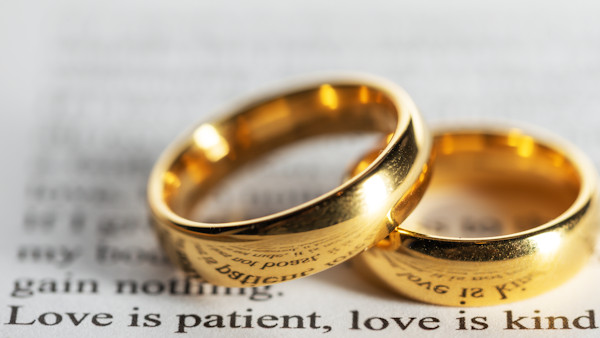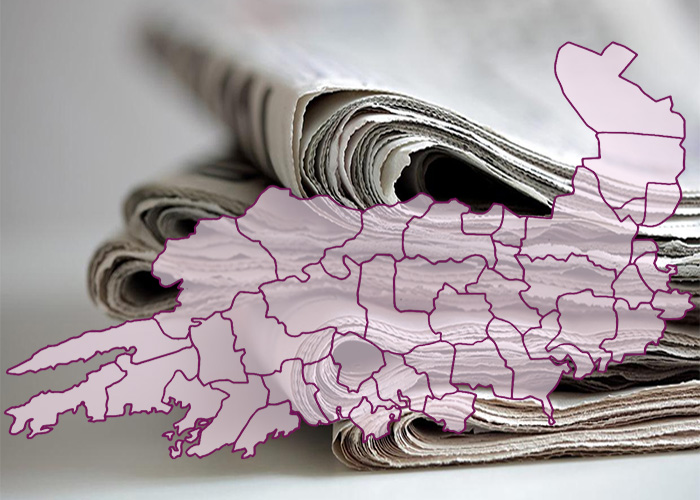This guide is intended to assist you with planning your journey towards the wedding day if getting married abroad
The different issues are addressed in the context of norms in the Diocese of Cork and Ross, Ireland. Getting married abroad introduces several other issues. These are not insurmountable once their relevance is appreciated. However, it is impossible to cover all the issues due to the range of locations, dioceses, rites, languages, etc. We hope to cover here some of the core issues.
Please note that no responsibility is accepted for the fact that local circumstances are subject to change and requirements of local jurisdictions vary. Always check with the relevant civil or ecclesiastical body before making decisions.

Who Will Recognise Your Wedding?
The most important dimension is to recognise that marriage has two sets of implications. Catholics will want their Church to recognise that they are married. As Irish citizens, couples will also want the Irish State to treat them as a married couple. Hence, marriage has to aspects: religious and civil.
In Ireland, both are traditionally blended into one ceremony because of a law that recognises certain ministers of religion as registrars of marriage for the purposes of the law of the land as well as the laws of the Church. Hence, couples that marry according to the rites of the Catholic Church in Ireland do not have to attend a ceremony at the registrar’s office also.
This is not always the case abroad. In some countries, a Catholic Church wedding ceremony is only recognised by the Church. Accordingly, the first significant issue that needs to be addressed is whether your wedding will be properly registered by the Catholic Church and by the State in the country in which you propose to marry. If the answer to both is yes, then your marriage will naturally be recognised by the Catholic Church in Ireland and will also be recognised by the Irish State.
The couple is responsible for ascertaining the answer to this question before making any arrangements.
Booking A Wedding Abroad
In theory, you may celebrate your wedding in any Catholic Church that is authorised by the local diocese if the officiating priest or deacon is authorised by the local bishop. Each local diocese has a list of such churches. You need to contact the particular diocesan office for further information. The Church in Ireland does not keep a list of such churches or priests!
If you are getting married abroad, you may be able to provide your own priest to officiate. If not, you will normally be either assigned one (Roman venues) or you need to ask for one to be assigned to you.
If you are planning a wedding abroad, it is your responsibility to ensure that a duly authorised Catholic priest is available to officiate. [Irish dioceses do not have lists of such priests, you need to contact the relevant diocesan office abroad.]
This is a list of some of the popular venues for weddings abroad:
Rome
Rome has the advantage of having a number of Irish priests based in either the seminaries, houses of study, the Vatican or religious orders who have churches in Rome. As a result, the ceremony normally will be in English.
The Pontifical Irish College
The Irish College is run by the Irish Bishops and provides seminary formation, post-graduate accommodation and pilgrim accommodation as well as being a venue for weddings. There is detailed information about getting married at the Irish College on its website at: www.irishcollege.org
San Silvestro in Capite (Pallotines)
The Basilica of San Silvestro was designated as an English language church by Pope Leo XIII and entrusted to the care of the Pallottines, a community founded by St Vincent Pallotti in 1839. The Pallotine Fathers also have houses in Ireland. Telephone: 00 39 06 6797775
Spain
The first issue you have to address is identifying in which diocese in Spain is the proposed venue for your wedding located. This includes resorts in mainland Spain, some Mediterranean resorts and the Canary Islands. The website of the Spanish Bishops’ Conference has a map of Spain and the islands which indicates the dioceses.
General points
If you ask the local Spanish diocese to provide a priest to officiate at your ceremony, be aware that the ceremony may not necessarily be in English (you may be asked to exchange your vows with the aid of an interpreter), it may be bi-lingual, and it may not include Mass in every instance. You need to check these issues yourself with the officiating priest.
The Islands
Ibiza, Mallorca and Menorca are each separate dioceses. The Canary Islands are divided into two dioceses. The Diocese of Canarias includes the islands of Gran Canaria, Lanzarote and Fuerte Ventura. The Diocese of Tenerife includes the islands of Tenerife, El Hierro, La Gomera and La Palma.
See the Spanish diocese map here (with contact details at the foot of the page)
[Language tip: “Arzobispado” means the Archbishop’s office. “Obispado” is the Bishop’s Office. “Más información” means more information, and usually is a URL.]
The Premarriage Course
Couples who celebrate their wedding abroad are not exempted from the need to undertake adequate pre-marriage preparation. This is because the focus of the preparation is not on the wedding day – it is on preparation for married life. The priest who completes your pre-marriage papers is responsible for ensuring that you are prepared for this life-long commitment.
Most couples choose to satisfy this requirement by furnishing evidence that they have participated in an approved pre-marriage course.
See separate section on providers of premarriage courses in our area
Planning the Marriage Ceremony
The premarriage course will not deal directly with all the issues involved in preparing the ceremony. This is done with the priest or deacon who will be officiating at your wedding. You should ask the officiating minister abroad what options are available to you. These vary from country to country and from culture to culture.
Church Papers
Each Catholic getting married needs a completed Prenuptial Enquiry Form which will be provided by one of the priests of your current parish. This takes about 20 minutes to complete and is usually done by appointment. Both people do not need to be present unless you already live in the same parish.
If your partner is not a Catholic, your priest will need to apply to the bishop for a ‘dispensation’ - a formal recognition of your marriage. Your local priest will process this for you. Allow extra time for this process.
When meeting with the priest to complete the papers - at least four months before the wedding, - you need to bring:
- A Certificate of Baptism from the church where you were baptised, which has been issued in the six months prior to the date of the marriage.
- A Certificate of Confirmation from the church where you were confirmed (not required if your Certificate of Baptism includes a record of Confirmation).
- Letter(s) of Freedom: Needed if you lived for more than six months in a parish other than your current one since you were aged 16. (Obtainable from a priest of the relevant parish(s); not needed for college years.)
- Evidence of pre-marriage preparation. (A Certificate will be issued to you at the end of the course.)
The priest who completes the premarriage papers of the groom forwards them to the priest who completes the premarriage papers for the bride. The latter then forwards both sets of papers to the Diocesan Secretary. The papers are checked thoroughly to ensure that they comply with local Church law and norms and are then forwarded onwards by registered international mail or courier (You may be asked to contribute to the cost of sending the papers abroad in this fashion.).
If the marriage is being celebrated in Rome, the papers are sent to the Church authorities of the venue where the marriage is to be celebrated. These take them to the Diocesan Office in Rome where they are checked and —if all is in order - permission for the marriage is granted.
For other venues abroad, the papers are sent to the bishop’s office of the place where you intend to marry. The diocesan authorities with jurisdiction over the venue for the marriage are asked to give permission for the marriage to go ahead and, if so, they forward the papers to the parish priest of the venue.
These papers are stored at the parish where you get married after the ceremony and an entry detailing your marriage is made in the church’s Marriage Register. The church where you were baptised is also notified and an entry is made in your baptismal record. The parish church of the place of your marriage will later be able to supply you with a church certificate of marriage.
State Requirements
If you are getting married abroad, be sure to check well in advance of making arrangements as to what the civil authorities of that country require for the civil registration of your marriage. Most European countries (including the civil authorities in Rome) require a letter from the Irish government to the effect that you are free to marry.
You need to notify the Department of Foreign Affairs, (Marriage Abroad section), 80 St. Stephen’s Green, Dublin 2.
Once your marriage satisfies the requirements of another jurisdiction and is registered there, it is recognised here in Ireland (but is not registered here).

